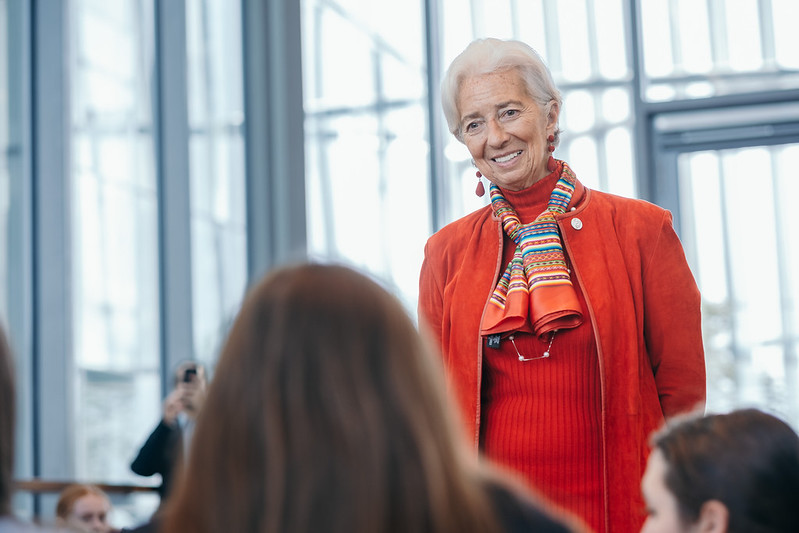By David Barwick – KYIV (Econostream) – European Central Bank President Christine Lagarde on Thursday said that closer ties between Ukraine and its European neighbours would help the former rebuild.
Speaking at the 9th Annual Research Conference of the National Bank of Ukraine and the Narodowy Bank Polski, Lagarde warned however that the deeper integration of Ukraine with Europe had to be based on sound domestic policies and to be accompanied by ongoing reform that quickly and tangibly improved the welfare of citizens.
There were key lessons to be drawn from the experience of other countries for which growth and reform had been driven by integration with neighbours, she said.
`…institutional reform momentum can fade if economic benefits do not follow quickly`, she said. While the synchronisation of institutional frameworks was relatively low-hanging fruit, economic gains took longer, she said, since for these, `domestic entrepreneurs and foreign investors must respond to the new incentives created`.
`In the long run, evidence shows that countries with initially weaker institutions benefit the most from adopting higher standards`, she said. `But in the short run, if people only see the effort and not the payoff, public support for further reforms can weaken, putting long-term convergence at risk.`
Another risk is that structural economic shifts could eventually undermine the connection between integration and economic convergence, she said.
Countries cannot depend as much as they used to on the automatic convergence historically associated with integration of goods markets, she said, given the increasing importance of services in intra-EU trade.
To be able to exploit this structural shift, `countries will need to invest more in education, skills and digitalisation to ensure they can build high levels of human capital`, she said.
`Maintaining the path of convergence is therefore not easy`, she said. `But slowing down reform efforts is not the answer – especially in the shock-prone world we face today.`
Given the `clear link between strong institutions and economic resilience`, she argued, the risk was that ìnstitutional backsliding`could lead to a ` vicious circle: repeated shocks can undermine economic convergence and further erode public confidence in the reform process.`
In order to keep up reform momentum, countries should ensure continued support from their populations by strengthening governance in economic sectors with a competitive advantage, thus leading to quick and clear growth, she said.
`This way, the benefits of reforms will be felt more quickly and more widely`, she said.
Ukraine, was in a good position to implement reforms successfully, Lagarde argued, pointing to its strong IT sector and its relatively large output of STEM graduates.
`If Ukraine stays the course on institutional reform and continues to adapt its economy to new opportunities, despite the stormy environment, it can emerge as a vital engine of growth and a key contributor to the region’s future`, she said.

